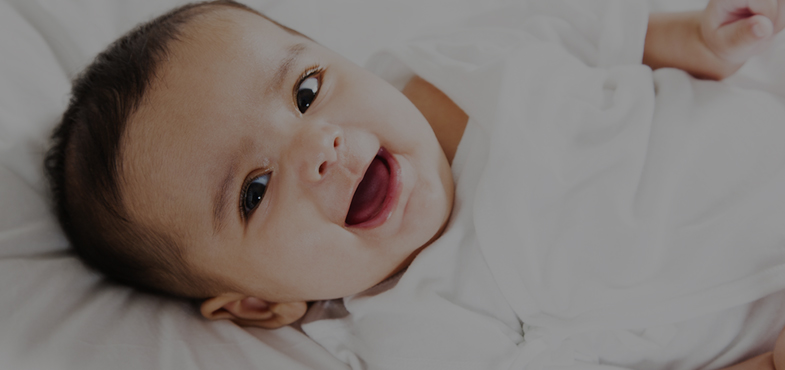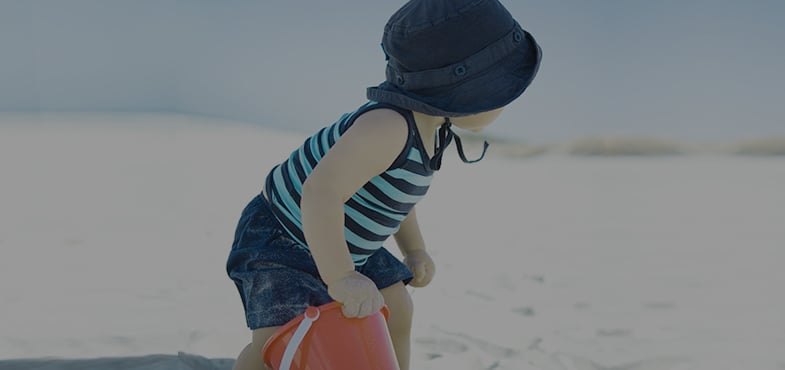HI,
now we are going to talk about baby care,
now about How to keep baby skin healthy,


now we are going to talk about baby care,
now about How to keep baby skin healthy,

As your baby gets older, he’ll become more active, and chances are you'll be right behind him with a washcloth, trying to keep him clean. As you wash him more often, you'll need to make sure his skin stays moisturized to help keep it healthy.
Recent studies have shed light on the differences between adult and baby skin. Baby skin is more "active" than adult skin—it's constantly continuing to develop. It's more vulnerable to irritants, changes in temperature and changes in humidity. Therefore, you need to protect your baby's skin against environmental changes and harsh cleansers.
Your baby's skin will change rapidly throughout his growing years. It's very different from yours—it needs extra protection to keep it clean, moisturized and healthy. Remember, healthy skin is not just an aesthetic nicety. Your baby’s skin barrier is his first line of defense from the outside world. To remain healthy, it is important for his skin to be properly hydrated. Healthy, properly hydrated skin forms a barrier against bacteria and other infections. So start now to safeguard your baby's healthy skin for a lifetime.
Use a Mild Cleanser
As you find yourself washing his face and hands more frequently, use a cleanser that gently restores cleanses his skin. Keep an extra bottle in the diaper bag for whenever you're on the go.
Keep Your Baby’s Skin Hydrated
It’s a good idea to use a moisturizer after bathing your baby. In a clinical study, 10 percent of mothers surveyed believed that their baby's skin was dry, when in fact, more than 60 percent of these babies had clinical signs of dryness!
Your baby’s skin absorbs water faster than adult skin can, and can also lose water faster too! That's why regularly moisturizing your baby's skin is a good way to protect against dryness.
Baby Massage
A nice way to monitor the healthiness of your baby's skin is through massage. It gives you an opportunity to go over the entire surface and to check for dryness or chafing.
That’s not the only benefit. As your baby grows and undergoes developmental changes, massage can help ease transitions. It provides many emotional and physical benefits for your growing baby to:
- Calm him when he's upset or fretful—massage has been shown to reduce the circulation of the stress hormone cortisol in the bloodstream
- Increase his sense of well-being — massage has been shown to stimulate endorphins, which can lift your baby's mood
- Ease gas and constipation — stroking his tummy can help disperse air
- Release tension caused by, for example, teething
- Relax his arm and leg muscles
- And of course, to help him develop a close and trusting relationship with you
Freshening
Freshening your little one can be a great bonding experience after every bath and diaper change. You can use JOHNSON’S® baby powder. It protect baby's skin from excess moisture and leave it soft and smooth. It’s a classic and eliminate friction while keeping skin cool and comfortable.
Wipes
For those times when you’re out and about or when hand washing just isn’t convenient or you may be wanting to freshen your baby in between baths, you can still be comfortable keeping your baby clean and fresh. JOHNSON’S® baby skincare wipes helps in keeping baby's skin clean, while staying soft, supple and healthy.
Moisturizing Can Mean So Much More
Moisturizing your baby’s skin not only protects it, it does much more. Everyday rituals like moisturizing become more powerful when multiple senses, like smell and touch, are stimulated.
Studies have shown that routine touch can lead to improved physiological, cognitive, emotional and social development and your baby’s first emotional bonds are built from physical contact. Enjoyable and familiar scents have been proven to improve your baby’s mood, calmness and alertness—while stimulating his memory. Together, your gentle touch and the smell of the lotion you smooth on your baby’s skin, nurture your bond and your little one’s happy, healthy development.
Even though your child’s first set of teeth aren’t permanent, it’s important to keep your toddler’s teeth clean. Cavities form when the naturally occurring bacteria in your toddler’s mouth combine with sugars in the food residues left on his teeth, producing an acid that attacks his tooth enamel.
Teaching your little one to care for his teeth offers another great chance for you to bond, while helping make trips to the dentist easier and instilling lifelong healthy dental habits early on.
When to Clean Your Toddler’s Teeth
Your toddler will need his teeth cleaned at least twice a day. After breakfast and after his evening meal are ideal times, but before bed is the most important time to brush a child's teeth; decay-causing bacteria are more likely to grow at night.
How to Brush Your Toddler’s Teeth
- Appeal to your toddler's sense of independence (only big boys and girls get to brush their own teeth), provide some tasty toothpaste and a small, soft toothbrush like JOHNSON’S® baby toothbrushwww.babycare111.com, and the task may be greeted with the same enthusiasm as a new toy.
- Use a pea-size amount of toothpaste containing fluoride. Too much fluoride could cause permanent tooth stains
- He may only concentrate on the front, so remind him to get the teeth hiding in the back
- Show him how to rinse thoroughly with water, and then carefully brush his teeth yourself, as young children usually don't get into all of the cracks and crevices. By the time he's in second or third grade, he'll be able to brush his teeth on his own
When to Take Your Toddler to the Dentist
Now is a good time to get your toddler used to visiting the dentist every 6 months for a checkup. Do your best to make the occasion fun. If he's nervous, sit him on your lap in the "magic" chair so the dentist can have a quick look inside his mouth.
Healthy skin care habits begin early. By taking steps now to protect your baby's delicate skin from the sun's harmful rays, he can enjoy a lifetime of healthy skin.

Newborn Sun Safety
Babies under 6 months should not spend any time in the direct sun. Because your baby's own photo-protection is still underdeveloped, sunburn can occur despite your best sun blocking efforts—and it may take only 10 to 15 minutes for his skin to burn!
Most pediatricians recommend that sunscreen products not be used on babies under 6 months of age, which means you'll need other methods of protection. When taking your baby outdoors:
- Stay indoors between 10 am and 2 pm, the hottest part of the day
- A hat with a brim is a must
- Loose clothing can help protect the rest of your baby's skin
- Sit under shade
Older Babies
Even older babies (and children) should avoid exposure to direct sun for any extended period. They should always wear protective clothing and sunglasses.
As your child grows and matures far past babyhood, continue to ensure that his skin is carefully protected from the sun. By establishing healthy habits, you can provide nurturing care for your baby now, and for years to come
